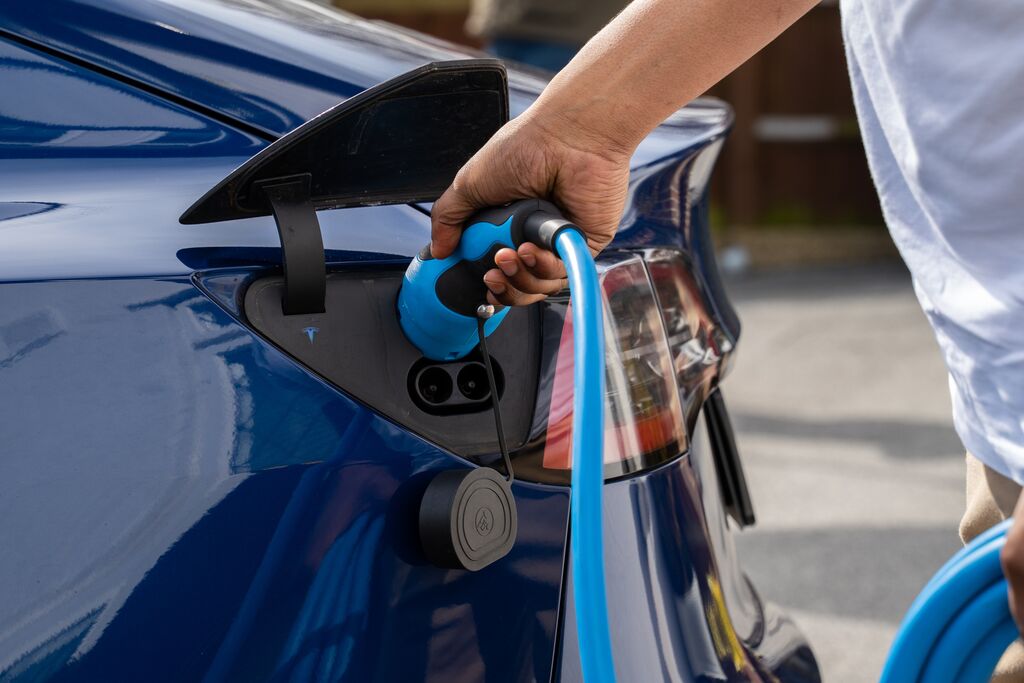How long does it take to charge an EV?

One of the most common questions potential buyers ask us is, "How long does it take to charge an EV?" The answer to this question varies depending on several factors, including the charging speed, the battery capacity of the vehicle, and the state of charge when you start charging. In this article, we'll delve into these factors and provide you with a comprehensive understanding of charging times.
Charging speeds
Fast AC charging: 7kW - 22kW
Shell Recharge fast (AC) charging is a convenient and moderately quick charging option, ranging from 7kW to 22kW. You can find these chargers at home, on-the-go, at shopping centres, car parks and cinemas but also at business locations. An EV with a 60 kWh battery will take roughly 8 hours to charge from 0-100% on a 7.4kW standard home charge point.
Rapid DC charging: 25-150kW
This option takes charging speeds to the next level, providing power levels from 25-150kW. However, the most commonly used rapid charging speed is 50kW. Designed for those seeking a faster charge without sacrificing practicality, rapid charging offers a range of benefits that cater to different charging scenarios. In ideal conditions, you can recharge 20 to 80% in less than 60 minutes*, using 50kW charging speeds.
Ultra rapid DC charging: 150+kW
For even faster charging, you will also find ultra-rapid 150kW and 175kW chargers and in some cases even up to 350kW. These high-powered chargers can charge an electric vehicle faster than regular chargers – helping drivers get back to their journey sooner. In ideal conditions these can charge most vehicles up to 80% within 30 minutes**.
It's important to note here that you should always check your EV charging capacity, which is the speed at which your EV can receive a charge though. Some older models cannot charge at 175kW because their EV simply doesn't allow for it. Speeds of 175kW are by no means the standard so make sure you know what you can expect.
Battery capacity
The battery capacity of your electric car is another crucial factor that affects charging times. Battery capacity is measured in kilowatt-hours (kWh), and it represents how much energy the battery can store. A larger battery will take longer to charge fully, all else being equal.
Let consider two EVs, one with a 40 kWh battery and another with an 80 kWh battery. If both cars are connected to a charge point capable of charging at max speed of 7.4 kW, the 40 kWh battery will take approximately 5-6 hours to charge fully, while the 80 kWh battery will take twice as long, around 10-12 hours.
Calculating charging time
To calculate the approximate time, it takes to charge your EV, you can use the following formula:
Charging time (hours) = Battery capacity (kWh) / Charging speed (kW)
For example, if you have a 60 kWh battery and you are using an AC charge point with a charging speed of 7.4 kW, the calculation would be as follows:
Charging time = 60 kWh / 7.4 kW ≈ 8.1 hours
This formula provides a rough estimate of the time required to charge your EV from empty to full. Keep in mind that charging is not linear, and State of charge (SoC) which is the level of charge of an electric battery relative to its current capacity plays a part. The resultant effect is the last 20-30% of the battery may take longer due to reduced charging speeds to protect the battery.
Our EV database, with its wealth performance statistic for many different EV models, is your ultimate EV charging source. Explore electric range capabilities, maximum charging power, max charging speed, and battery capacity of all available EVs.
The time it takes to charge an electric car depends on various factors, including the charging speed, battery capacity, and starting state of charge. Understanding these factors can help you plan your charging needs more effectively. As the electric vehicle infrastructure continues to expand, faster charging options are becoming more widely available, making EV ownership even more convenient. Charging times are gradually decreasing whilst range is increasing, making electric cars a practical and sustainable choice for more and more drivers.




